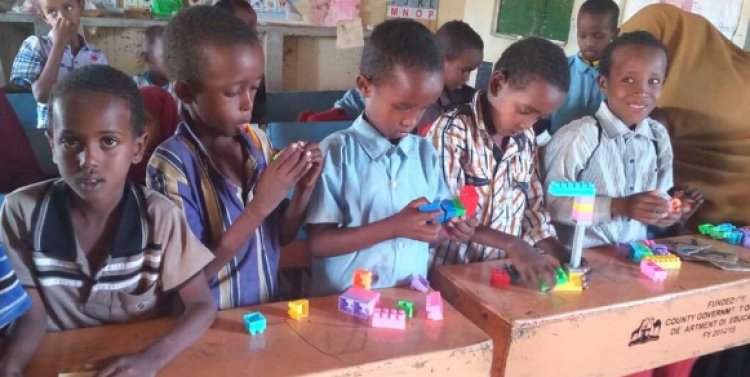CBC World Play Program To Benefit Over 6,000 Students
World Vision Kenya and the Kenya National Libraries Service (KNLS) have launched a Sh3 million Build a World Play campaign.

The play program is designed to improve kids' educational experiences and foster a lifelong love of learning that will help over 6,000 kids.
Education officials will be involved in encouraging play-based learning and support the implementation of the Competency-Based Curriculum (CBC).
Through reading and play activities on the sides of the road and in nearby schools, the program aims to engage children.
It aims to improve students' core knowledge in grades one through three, including literacy and numeracy.
The initiative will also benefit teachers and more than 5,000 caregivers in the counties of Nairobi, Kakamega, and Narok.
The KNLS will make use of existing mobile libraries to encourage literacy via play and reading with the use of a play-bus caravan that is aimed at young children, schools, and parents.
KNLS Chief Executive Dr. Charles Nzivo said the campaign fits in nicely with what the organization has been doing to encourage reading among youngsters during the launch on Wednesday in Nairobi.
“Through partnerships, the children’s sections in some libraries have been refurbished into colorful children’s corners that are stocked with relevant learning materials, including books, audiovisual content, educational games, and toys,” he said.
According to him, the KNLS works to provide kid-friendly areas and activities through school outreach programs and library programming.
The project, according to World Vision Kenya's acting National Director Geoffrey Kativa, highlights the value of play in enhancing early learners' academic results.
“This collaborative project is an integrated tool that will incorporate county education officials, school heads, teachers and caregivers in promoting play as a critical element in teaching early-years education,” he said.
“It will also ensure that the value of play for children’s holistic development and learning is widely understood and enacted in early-years education policies and reflected in resource allocations.”
He noted that several schools have already benefited from the program, with caregivers having received training to create teaching and learning materials given the crucial part they play in a child's educational achievement.
According to research, play is one of the most crucial ways for young children to acquire fundamental knowledge and abilities.

























